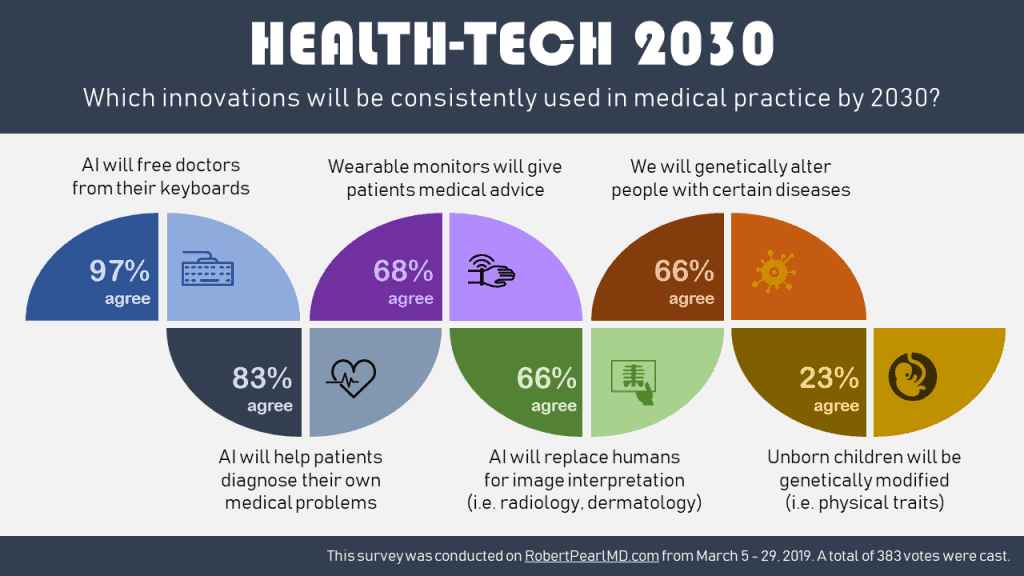Respondents were asked whether these 6 innovations will be consistently used in medical practice by the year 2030. Here are the results:

I was surprised by the feedback in last month’s survey, specifically the optimism people had about the role technology will play in the future. There was near unanimous agreement that technology will untether physicians from their keyboards and allow patients to diagnose their own problems by the year 2030. Both of these developments would be positives.
To facilitate the first innovation, we need to move away from fee-for-service billing, with its restrictive requirements around coding and documentation. For the latter, businesses will need the courage to translate medical knowledge into medical devices that help patients, despite the legal risks involved. So far, that hasn’t happened.
Similarly, when it comes to wearables and artificial intelligence, the limiting factor isn’t the technology. It’s society’s unwillingness to forgive mistakes that come from machines. We accept that “to err is human,” but we expect technology to be perfect. Even a recommendation, interpretation or conclusion that is 99.99% accurate will be wrong once every 10,000 times. And when it happens, it makes page news and goes viral on social media.
Survey respondents were less confident about the impact of genomics in the future. The technology for genetic alteration has made huge leaps forward. But as recent coverage from China shows, the application of CRISPR on humans remains controversial.
* * *
Dr. Robert Pearl is the former CEO of The Permanente Medical Group, the nation’s largest physician group. He’s the bestselling author of “Mistreated: Why We Think We’re Getting Good Health Care–And Why We’re Usually Wrong” and a Stanford University professor. Follow him on Twitter @RobertPearlMD.






